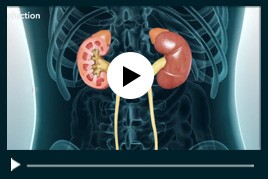Von Hippel-Lindau Disease
Von Hippel-Lindau disease (VHL) is an inherited genetic disorder characterised by benign and cancerous tumours in parts of the body that have a rich supply of blood vessels. It is a rare condition that develops from the abnormal growth of blood vessels as knots (hemangioblastomas) in the brain, spinal cord and eye. Cancers may also develop in other parts of the body such as the kidneys, pancreas and adrenal glands.
What are the symptoms of VHL?
The symptoms of VHL vary depending on the location of the tumours and the structures they compress. You may experience headaches, dizziness, problems with balance, pain, weakness, difficulties with vision and high blood pressure.
How is VHL diagnosed?
When you present to your doctor with a positive family history or symptoms suggestive of VHL, your doctor will review your symptoms and medical history, and perform a thorough physical examination. A DNA test is recommended to identify VHL mutation. Your doctor will examine your eyes, and order imaging tests (CT or MRI scans) of the body to identify the characteristic tumours or other abnormalities.
If you have a known family history of VHL but no symptoms, periodic screening is advised.
How is VHL treated?
Treatment depends on the size and location of the tumours and the symptoms produced. Non-symptomatic tumours are monitored on a periodic basis and treated when the need arises. Tumours that are large or found to be compressing on or potentially endangering important structures such as the brain, spinal cord and eye are removed either by surgery or focused radiation. Kidney cancer is treated by removal of part or the entire kidney, followed by replacing the diseased kidney with a healthy organ.

 Menu
Menu




